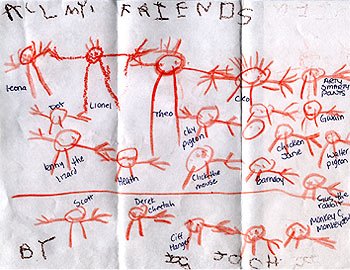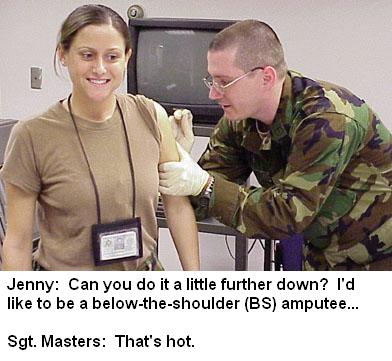Does Will Shortz have a Real Job?
A huge foreword to this post is going to go something like:
I don't really care about the answer to the titular question because I do [read: try to do] the New York Times crossword puzzle every day and I pretty much rely on Will for my daily dose of entertainment.
But one has to wonder.
 The man was a self-invented Enigmology major from Indiana University and afterwards he had an affair with law school, but skipped the bar exam to pursue a "career" in "puzzles" instead.
The man was a self-invented Enigmology major from Indiana University and afterwards he had an affair with law school, but skipped the bar exam to pursue a "career" in "puzzles" instead.
The most unsettling obersvation that goes along with the daily puzzle doing is that Will always seems to have a partner in puzzle constructing crime. Some common-named nobody who could be your next-door neighbor. A compelling portion of an interview with a co-star in the recent movie "Wordplay" sends a chill of confirmation down my spine:
I'm sure it is important! Will Shortz, affiliated with the prestigious NY Times and now with a WILDLY succesful film, must be terrified of burning out. You can only cram:
"Erns"
"Epee"
"Etre"
"Err"
"Ere"
"Espouse"
"Eft"
Etc, etc, etc... into a puzzle so many times during the week. Does Will Shortz claim joint custody over each day's puzzle to shift the burden of flak he must incur? By "burden" I am referring to the piles of canine, and perhaps ursine, feces and bottles of human urine that must accumulate on Mr. Shortz's doorstop come Thursday and continue on through Saturday.
I suppose I can't deem Will Shortz's job real or fake, but I can say that I'd feel a whole lot better about it if he didn't farm out the crossword task. Come on, Will, you're an Enigmologist. Get wit it now.
I don't really care about the answer to the titular question because I do [read: try to do] the New York Times crossword puzzle every day and I pretty much rely on Will for my daily dose of entertainment.
But one has to wonder.
 The man was a self-invented Enigmology major from Indiana University and afterwards he had an affair with law school, but skipped the bar exam to pursue a "career" in "puzzles" instead.
The man was a self-invented Enigmology major from Indiana University and afterwards he had an affair with law school, but skipped the bar exam to pursue a "career" in "puzzles" instead.The most unsettling obersvation that goes along with the daily puzzle doing is that Will always seems to have a partner in puzzle constructing crime. Some common-named nobody who could be your next-door neighbor. A compelling portion of an interview with a co-star in the recent movie "Wordplay" sends a chill of confirmation down my spine:
CS: Do you think Will might start getting all of these puzzles from would-be puzzlemakers because of the movie?
Creadon: He might. He gets about 60-70 puzzles a week. He writes back to everyone who sends him puzzles, he gives them notes. If he accepts it, he'll run it and let them know. If he doesn't, about 90% of the puzzles he gets do not run, but he'll write back and say, "You know what? I've done this theme before," or "I wasn't too crazy about some of the words in this puzzle, but you're getting there." This is extremely important to Will.
I'm sure it is important! Will Shortz, affiliated with the prestigious NY Times and now with a WILDLY succesful film, must be terrified of burning out. You can only cram:
"Erns"
"Epee"
"Etre"
"Err"
"Ere"
"Espouse"
"Eft"
Etc, etc, etc... into a puzzle so many times during the week. Does Will Shortz claim joint custody over each day's puzzle to shift the burden of flak he must incur? By "burden" I am referring to the piles of canine, and perhaps ursine, feces and bottles of human urine that must accumulate on Mr. Shortz's doorstop come Thursday and continue on through Saturday.
I suppose I can't deem Will Shortz's job real or fake, but I can say that I'd feel a whole lot better about it if he didn't farm out the crossword task. Come on, Will, you're an Enigmologist. Get wit it now.








